New Delhi, 22-23 April, 2019: A two-day international conference “Poetic Imagining(s) of South Asia: Borders and Nations” was organised by the Institute of South Asian Studies (ISAS) within South Asian University (SAU) on 22-23 April 2019. The conference initiated a dialogue between creative writers and literary scholars on the one hand and sociologists and anthropologists on the other. It sought to develop alternative conceptualizations of the politics of nationhood, borders, and representations through critical reading of literary narratives while drawing on the diverse scholarly traditions and activisms from within the Global South.
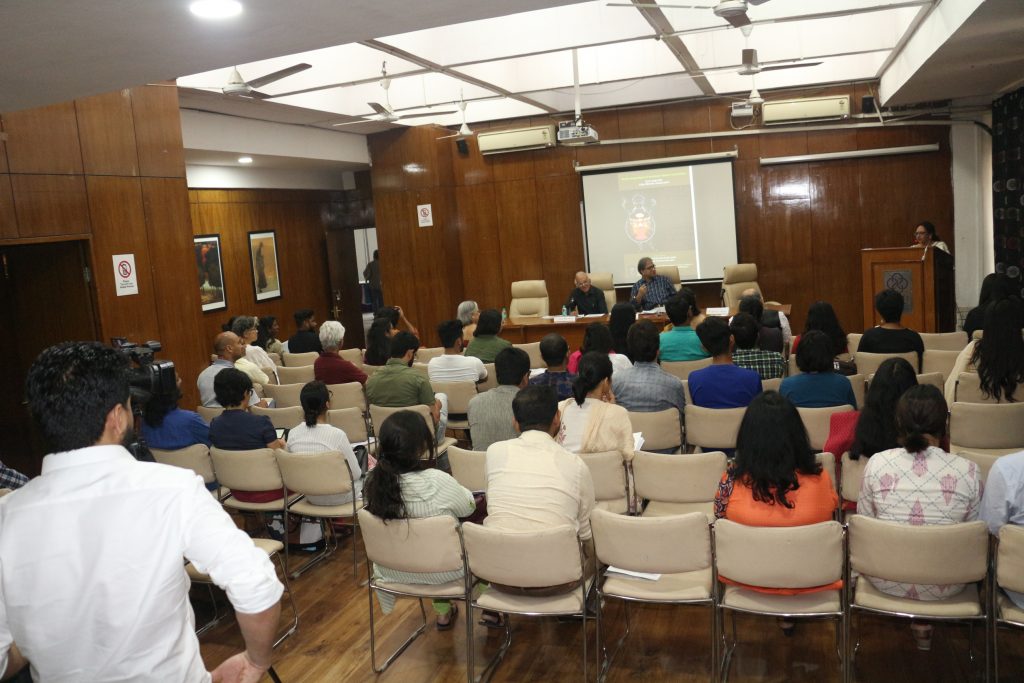
Dr. Kavita A Sharma addressing the gathering
The conference began with the opening remarks by Dr. Kavita Sharma (President, SAU) who underscored the importance of interdisciplinary conversation, especially given the shifting distinctions between Humanities and the Social Sciences. Dr. Promodini Varma (Secretary, ISAS and Director of Education, SAU) shared a brief history of the Institute of South Asian Studies and was followed by Dr Mallika Shakya (Senior Assistant Professor, Sociology, SAU) who introduced the research project on Poetics, of which this conference is a part.
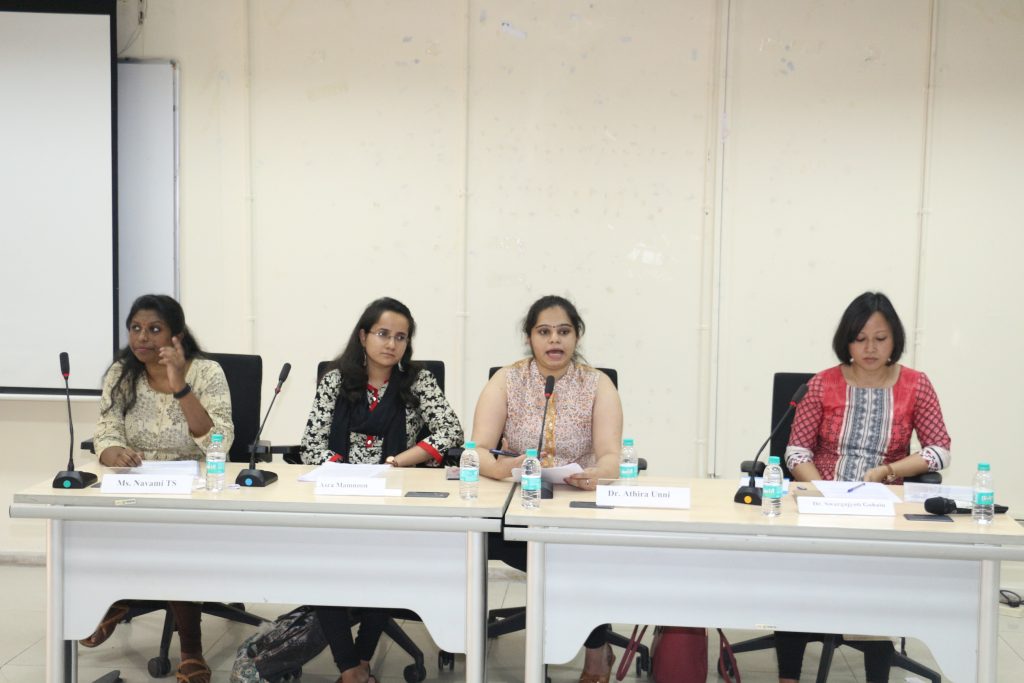
One of the panel discussions 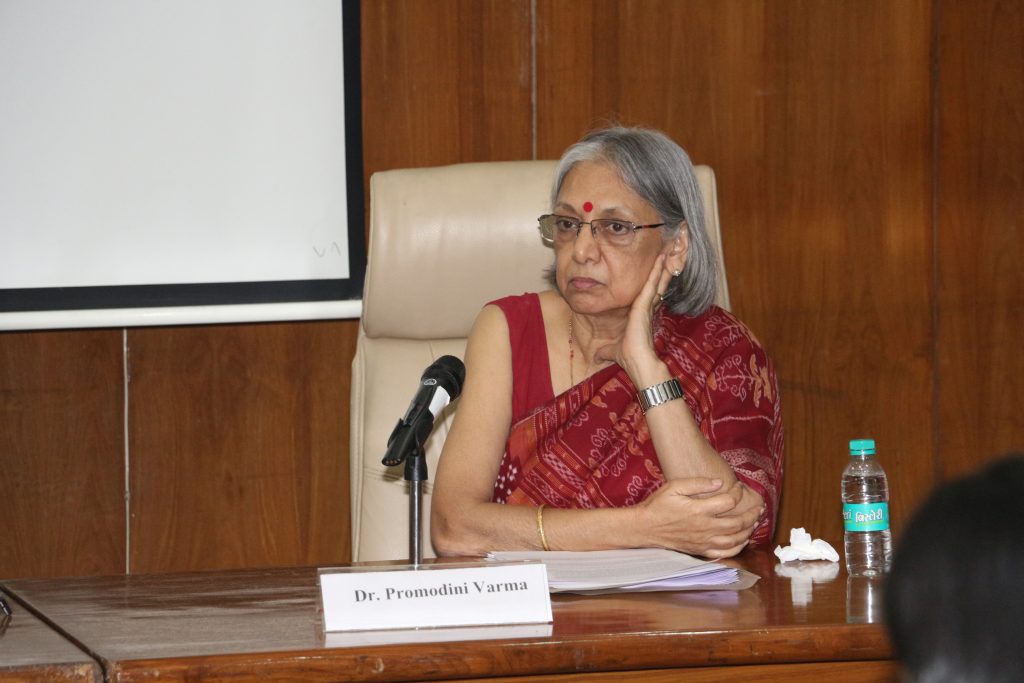
Dr. Promodini Varma 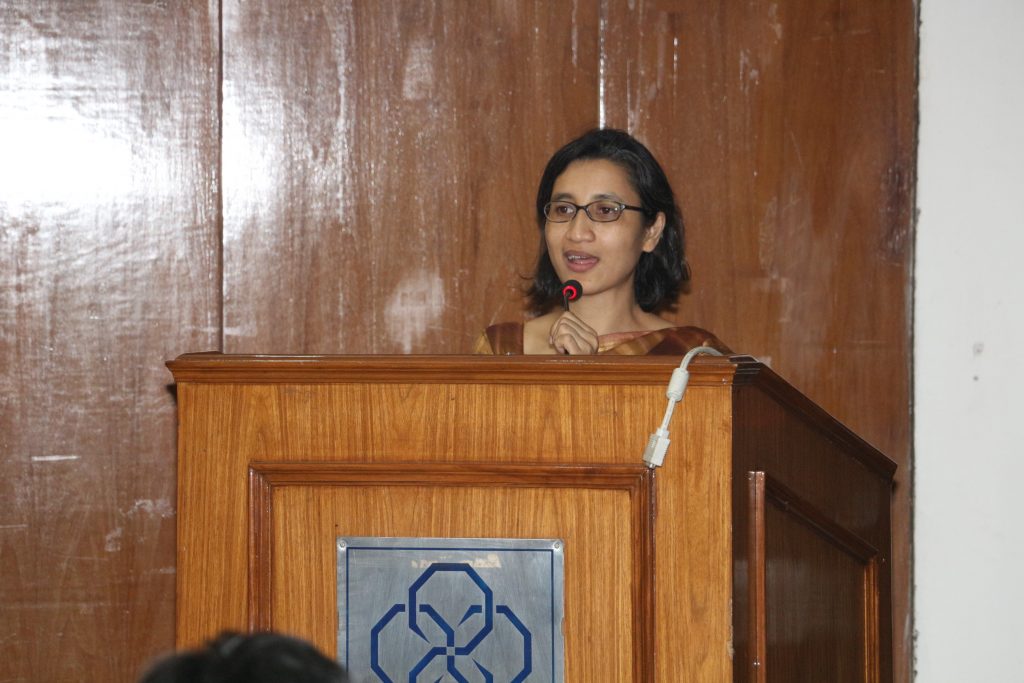
Dr. Mallika Shakya, Project In-charge 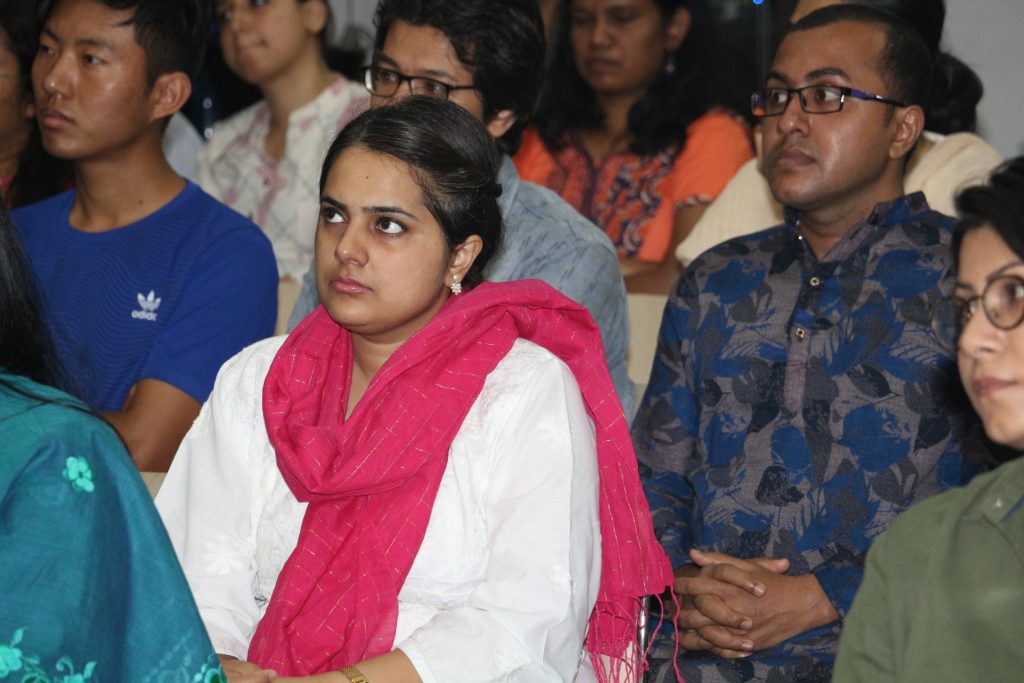
Attendees of the two day event 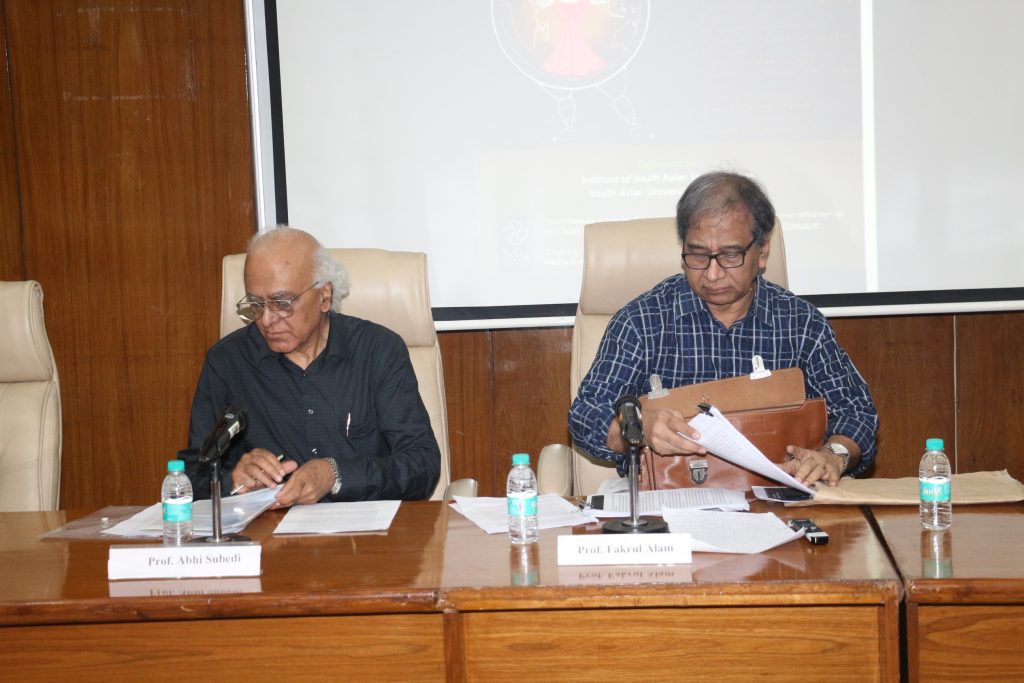
Prof. Abhi Subedi & Prof. Fakru Alam 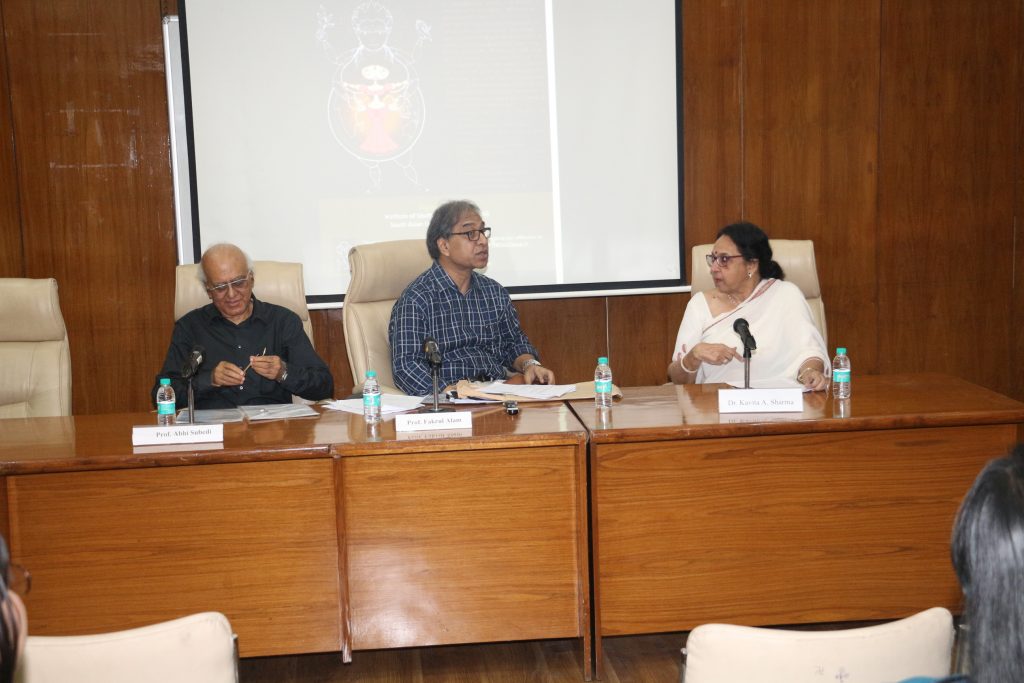
Prof. Abhi Subedi, Prof. Fakru Alam & Dr. Kavita Sharma
A plenary conversation held between Professor Fakrul Alam (Pro-Vice Chancellor, East West University, Dhaka) and Professor Abhi Subedi (Professor, Tribhuvan University, Kathmandu) reminded the audience the commonalities between South Asian writings, both written in English and a wide range of South Asian languages including vernacular modes of expression. They also touched upon the ancient and contemporary traditions which inform in more nuanced ways how Southasia may be imagined, without letting go of the everyday realities about fluidity of borders within this region.
The rest of the conference comprised of 14 panel discussions over two days held in two parallel sessions. Forty-two (42) scholars from Bangladesh, Nepal, Pakistan and Sri Lanka were selected from a large pool of abstracts submitted in response to the conference call for papers. The scholars who represented India came from diverse states and region. There were just under 100 participants at the conference. Following were the key areas of focus for this conference:
- fictionalizing nations, nationalizing fictions
- periodicising discourses on nation and border
- romance of the capital, romance of the hinterlands
- (symbolic) violence and peace
- the poetics of borders, borderlands and border people
- voice(s) of the stateless – refugees, exile and nomads
- governmentality and rebellion: power and fallibility of words
- the poetics of caste, religion, ethnicity, gender
- reclaiming mythology and folk, diverse aesthetics of story-telling
The first panel in stream-A brought together papers on contemporary reading of mythology and folk, and was chaired by Dr Promodini Varma, SAU. The panel on stream-B, chaired by Prof Fakrul Alam, East-West University in Dhaka, discussed how discourses are shifting on what kinds of literary expressions are considered desirable (or problematic) thereby altering the aesthetics of writing nations and regions in South Asia. These discourses were further scrutinized for intersectionalities and the issues of gender, caste, ethnicity and religion were spread through several papers deliberated subsequently in this conference. Cosmopolitanism adding to challenges and opportunities for national thinking but also cosmopolitanisation of South Asian cities emerged as a critical area of focus on the first day.
The second day of the conference began by looking into the creative corpus giving voice to marginalized tribes and far away subregions within South Asia whose perspectives often get lost in mainstream narratives about nation and region. The panel in the parallel session listened to three papers describing how protests against neoliberal corporatization and military oppression have been mustered through creative writing and theatrical performances. Other panels on the second day focused on contemporary and contested readings of partition literature as well as the literary texts giving voice to the rebels in borderlands of West Bengal, Jaffna, Madhesh and Kashmir.
At the closing session, Dr Ira Raja from University of Delhi synthesized her observations on the papers presented under stream-A while Dr Mallika Shakya from SAU shared her views about stream-B. Dr Promodini Varma shared her ideas on possible outcomes of the conference including production of an edited volume and a special issue in relevant journals. Professor Sanjay Chaturvedi said in his concluding remarks that the geopoetics of hope may coexist with the geopolitics of despair in South Asia, further anticipating this paradoxical pairing to pave way for more meaningful deliberations on the conundrum of everyday nation, region and border in South Asia.
Here are some coverage of the event in The Kathmandu Post published in Nepal
http://kathmandupost.ekantipur.com/printedition/news/2017-05-28/poetic-imagining.html
http://kathmandupost.ekantipur.com/news/2019-03-31/beyond-borders-20190331135450.html